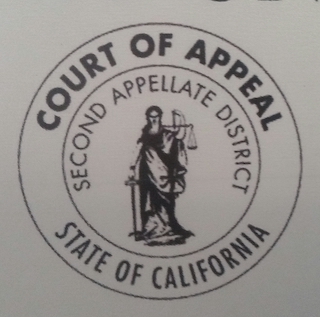In 1998, in the Clara Shortridge Foltz Courthouse in downtown Los Angeles, in the courtroom of Judge Stephen Marcus, the jury convicted Tak Sun Tan of robbery (Penal Code § 211) and first-degree murder (Penal Code § 187). The jury found true the firearm allegations (Penal Code § 12022(a)(1)) true for both counts. Tan admitted a prior conviction that was alleged as a strike prior and a prior serious felony. He was sentenced to 56 years to life for murder and the sentence on the robbery was stayed under Penal Code § 654.
In 2019, Senate Bill 1437 was passed, changing accomplice liability for felony murder and murder under the natural and probable consequences doctrine. As part of the bill, the Legislature enacted Penal Code § 1170.95, which allows defendants who could not be convicted of murder under the amended law to petition to vacate their murder convictions and to be resentenced on any remaining counts.
The statute, at § 1170.95(g) (renumbered in 2022 as 1172.6), also provides that, “A person who is resentenced pursuant to this section shall be given credit for time served. The judge may order the petitioner to be subject to parole supervision for up to three years following completion of the sentence.”
On May 31, 2019, Tan filed a petition for resentencing under Penal Code § 1170.95 and Judge Marcus held that no reasonable jury could convict Tan of murder and granted the petition.
Judge Marcus then vacated Tan’s murder conviction, imposed an aggregate determinate term of 16 years for the robbery, the high term of five years, doubled for his prior strike, plus one year for the firearm enhancement and five years for the serious-felony prior conviction – and ordered him released for time served. He was then ordered to parole for three years.
While such a series of events may be regarded as somewhat of a fortuitous series of events, Tan nonetheless appealed, contending that under Penal Code § 3000.01, his maximum parole term was two years, not three.
 Court of Appeal Second Appellate District Los Angeles
Court of Appeal Second Appellate District Los Angeles
His appeal was filed at the Second Appellate District Court of Appeal in downtown Los Angeles. The People conceded that Tan was correct.
The Second Appellate District began its analysis by noting that Penal Code § 1170.95(g) states the judge may order that defendant be placed on parole supervision for “up to three years,” so it could be less than three years.
Penal Code § 3000, in turn, governs the length of parole periods for defendants convicted of various crimes and includes parole periods that even exceed three years.
However, in 2020, the Legislature enacted a new parole statute that applies “notwithstanding any other law” to “persons released from state prison on or after July 1, 2020 . . .” Penal Code § 3000.01(b) & (a).
Under Penal Code § 3000.01, “[a]ny inmate sentenced to a determinate term shall be released on parole for a period of two years.” § 3000.01(b)(1). Any inmate “sentenced to a life term shall be released on parole for a period of three years.” § 3000.01(b)(2). The statute specifically exempts sex offenders and inmates whose offenses carried shorter parole terms when their offenses were committed. § 3000.01(d). It does not exempt inmates who were granted relief under § 1170.95.
Here, the Second Appellate Division explained, Tan was sentenced to a sixteen-year determinate term on August 17, 2020, after Section 3000.01’s effective date. Since he was released from prison after July 1, 2020, and is not excluded by subdivision (d), under the plain language of 3000.01, Tan’s maximum parole period was two years.
The final point that the Second Appellate District addressed was whether Tan’s excess custody credits could be used to reduce his parole term. Other cases have addressed this situation, but none so far have addressed it under the new Penal Code § 3000.01, so the Second Appellate District did not make a ruling that such prior cases applied to Tan.
We present this summary because the length of one’s parole period is often a concern to many, as it can be viewed as further control over one’s life that is not welcome. This case at least seems to clarify the law on parole for most cases.
The citation for the Second Appellate District Court ruling discussed above is People v. Tak Sun Tan (2d App. Dist., 2021) 68 Cal. App. 5th 1, 282 Cal. Rptr. 3d 858.
For more information about parole issues, please click on the following articles:
 Court of Appeal Second Appellate District Los Angeles
Court of Appeal Second Appellate District Los Angeles